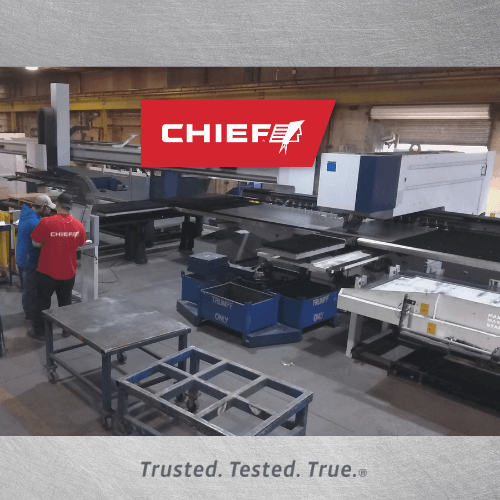The manufacturing industry employs nearly 10 percent of the country and is a leader in technology and innovation. The manufacturing industry continues to fuel the economy and is an ideal sector to join. Most manufacturing companies are willing to do on-the-job training for those with no previous work experience. This is a great way to build your resume and develop technical abilities. You will also have the opportunity to learn many valuable and transferable skills, such as time management, teamwork, and problem-solving.
Not only does the manufacturing industry provide many entry-level opportunities, but it also provides many different areas for you to work in. From aerospace, food production, textiles, to pharmaceuticals, manufacturing spans the spectrum. You can choose to work in a field you’re passionate or curious about. In manufacturing, you know exactly how your work matters. The products you create are real. They’re tangible. You can look at them and know precisely what their impact is which makes for a great sense of accomplishments.
Manufacturing is a large field with a wide range of positions, including a CNC Machine operator. Modern manufacturing companies are adopting advanced systems and equipment that is controlled by computers. This method – computer numerically controlled (CNC) machining – is reshaping the world of manufacturing and continuing to push it into a more technologically advanced industry. The manufacturing industry is driven by the speed of production; hence the need for innovative and highly skilled individuals.
CNC careers are on the rise. The essential role of a CNC operator is to set up and operate CNC machines and equipment. On any given day, an operator may unload raw materials, prepare a test run to ensure a machine is working properly, and inspect and measure finished products to ensure they meet requirements.
What is the difference between a CNC Machinist vs. a CNC Operator?
In some organizations, these two terms are often used interchangeably. Both roles involve setting up and running CNC machines to create and alter products. There are some subtle differences between CNC machinists and CNC operators worth noting. Among those in the field, CNC operators are considered more entry-level workers. CNC machinists, on the other hand, tend to have a bit more experience and advanced skills. Within many organizations, CNC operators work under the direction of CNC machinists.
Is it hard to be a CNC Operator?
If you’re just getting started on this new path in the CNC field, you will likely start out as a CNC operator. This role will give you the proper hands-on training and experience needed to gain proficiency in machine operation and familiarize you with the basics of CNC machining. Of course, this is not the only path to take when breaking into this industry.
More and more manufacturers today are looking for highly skilled workers with postsecondary training and education. This is where a degree or certificate in CNC machining proves quite useful. While a degree isn’t necessarily required to break into this field, there are many programs that provide hands-on training.
Even without a required degree or certification, pursuing a CNC machining program is a wise investment for a successful career. At a career-focused school, like Central Community College, your hands-on training with cutting-edge technology and interactive education from skilled, industry-expert professors will prepare you for the journey ahead. Not only will you acquire the skills that manufacturing employers today are seeking, you will also stand out among the competition.
Grand Island Public Schools offer an academy that is focused on technical sciences, providing high school students an insight into Architecture & Design, automotive, construction, manufacturing, and welding. Beyond the hands-on experience for high school students, Central Community College offers a CNC manufacturing certificate that provides students with advanced skills needed for an entry-level position (https://bit.ly/34637Sa).
How much does a machine operator make?
A common misconception is that manufacturing jobs don’t pay as much as other jobs, but that’s simply not true. These jobs often pay better than entry-level jobs in different industries. For example, the average production team member makes approximately 15% more than the average cashier.
Manufacturing jobs also often offer plenty of overtime opportunities. It’s a great way to make some extra money on top of a steady income. Healthcare benefits and retirement plans are also common among manufacturing employers, making these jobs highly desirable.
While a career in manufacturing may start out as an entry-level production role, there are other opportunities available in the industry. Remember, many companies, like Chief, prefer to promote from within. Once you have your foot in the door, you can potentially grow into leadership or management positions, in a wide variety of departments. Check out machine operator and CNC jobs right here at Chief Industries, chiefind.com/careers.
Check out a few videos of our dedicated employees in the CNC Machine Operator field.
- Chief Fabrication, Laser Lead Person: https://youtu.be/heuDCPCLISE
- Chief Agri, CNC Machine Operator: https://youtu.be/kAlMXefVXBA
- Chief Buildings, CNC Machine Operator: https://youtu.be/8y3NzUNyyIw

